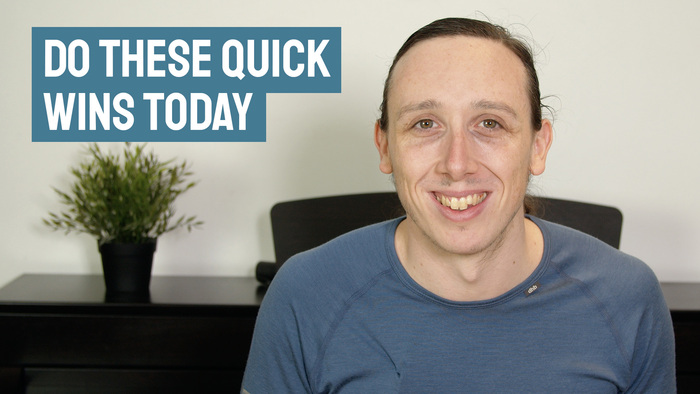Blog »
Five psychology quick wins
Published 14 December 2021. Written by Chris Worfolk.

Here are five things you do right with psychology to help your training. We'll look at why you should focus on values, how to prepare some self-talk, the importance of mindfulness, how previous experiences can build confidence and how social contracts can help keep us motivated.
Watch the video below or find the notes below.
1. Values over goals
Goals are great at motivating us in the short term. Doing a certain race, a certain distance, a certain training volume. But how do we avoid that post-race depression? And what do we do when we pick up an injury?
Focusing on our values can help us get past that. "I exercise to improve my mental health" or "to set a good example for my children" are values that are almost indestructible. Grab a pen and paper and brainstorm what is important to you.
2. Make a plan for hard times
Whether it's your first 5k run or your cycling across a continent there is a point where it is going to get hard. Mentally preparing yourself for this eventuality means you will have the resources you need to get out of it.
Think about practical plans (eating, drinking) but also self-talk. What are you going to tell yourself? Maybe it's that you knew it would be hard but are determined to complete it anyway. Or reminding yourself that you are someone who faces hard challenges and does not give up.
3. Use mindfulness
Mindfulness helps us observe our thoughts and feelings without getting caught up in them. It's an essential skill given endurance is about sitting with uncomfortable bodily sensations for a long time.
If you haven't got a mindfulness practice to hand, try this one.
4. Dwell on your victories
We get confidence from seeing ourselves doing something. It sounds a little chicken and egg: how do we build confidence for our first marathon without actually running one?
One piece of the puzzle is looking at your previous achievements. Re-read your journals, blog posts, Facebook updates. Flick through photos of previous challenges. Spend some time dwelling on the things you have already achieved, especially if they were really hard and yet you overcame them anyway.
5. Make a social contract
Have you ever noticed you are more likely to turn up to a workout if you have agreed to meet a friend or signed up to do it with the club? Use this social pressure to your advantage and sign up for a group session.